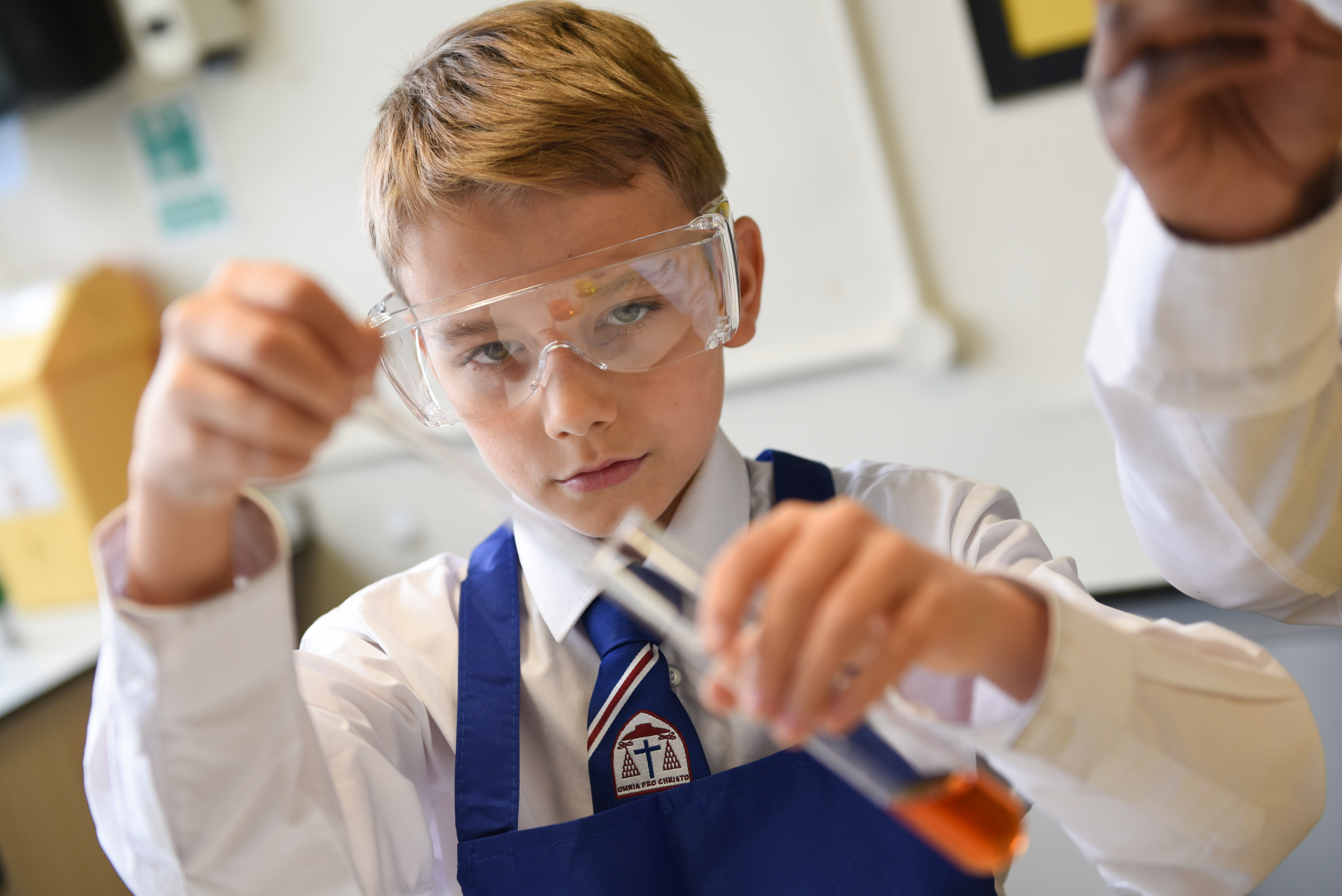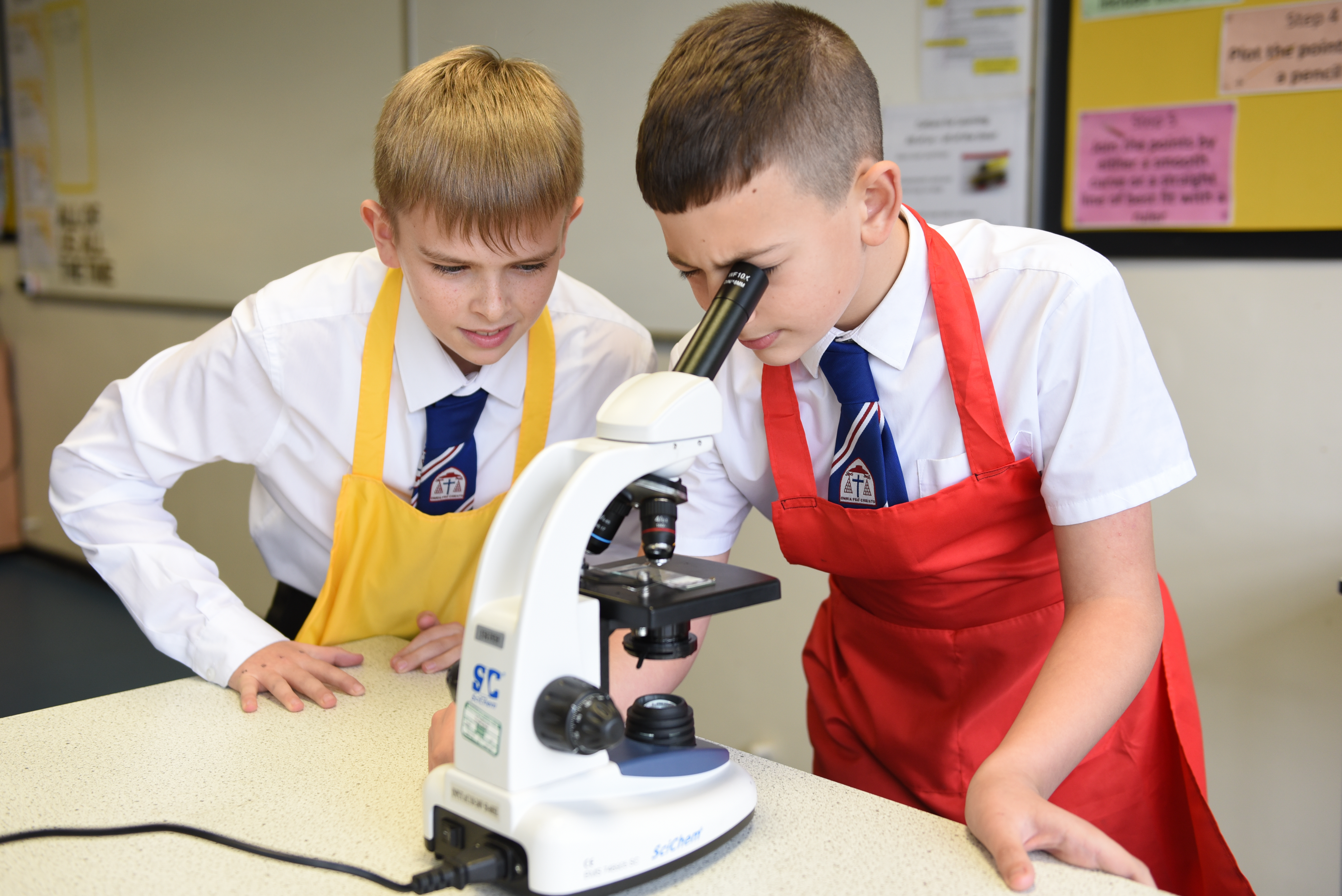We encourage speculation, creative thought and thorough analysis of evidence to create rigorous scholars

What is Science?
- The teaching of the study of everything encompassing, but not limited to, living organisms, environmental processes and the physical world.
Why is this subject important?
Science is a significant part of human culture and represents one of the pinnacles of human thinking capacity. It provides a laboratory of common experience for development of language, logic, and problem-solving skills in the classroom. Science encourages students to explore their world and discover new things, more about themselves and the world around them. It is also an active subject which allows students to build fundamental knowledge often in a practical way. It enables students to think about how we create new technology and other applications of Science, it is a way of sharing ideas, and helps pupils to satisfy their curiosity.
STEM careers are becoming increasingly important and pupils develop skills across their academic lives which make them more employable.
What is the purpose of the subject?
As our pupils grow up in an increasingly technologically and scientifically advanced world, they need to be scientifically literate in order to be successful. We are surrounded by technology and the products of science every day.
Public policy decisions that affect every aspect of our lives are based on scientific evidence, for example vaccination and public health, climate change and HS2. Children are exposed to scientific information in the media that without context, they will not be able to understand what it is and how it will affect them. Science teaching is vital for developing students who are able to evaluate information from a variety of sources and make a judgement. Students should be able to apply scientific principles to non-scientific ideas whilst avoiding biased information.




